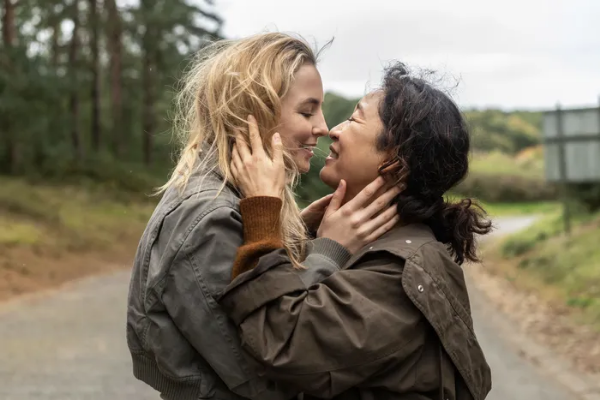Two steps forward, five steps back. That’s what LGBTQ+ representation in entertainment feels like after the famously queer show Killing Eve shocked fans with its recent series finale by killing Villanelle (Jodie Comer) just a few scenes after a long-awaited romantic encounter with Eve (Sandra Oh). Fans decried the move as the “Bury Your Gays” trope of queer characters dying unjustly.
Sure, the show has “killing” in the title, and Villanelle is a wanted assassin, so maybe death was inevitable, but it didn’t have to be, or at least, it didn’t have to happen like that. It’s indicative of two things television writers seemingly don’t understand: people like happy endings – death is not necessary for drama; and when your show highlights a marginalized group, the story goes beyond your show and becomes part of a landscape cherished by that group. Thus, in the mosaic of queer representation in television, Villanelle’s death contributes to a frustrating see-saw of progress and regression.
This see-saw has been prominent throughout the pandemic. Since early 2020, there’s been a surge of new queer shows. According to GLAAD’s 2021-22 LGBTQ+ representation report, the portion of queer to all TV characters reached a record high 11.9 percent. Also exciting, 2021 brought many queer weddings and happy endings.
However, there’s been substantial bad news, too. Numerous queer shows were cancelled – some in their infancy – and several shows minimized or marred queer couples, breaking them up immediately, or tarnishing happiness with a quick thrust into misery. And let’s not forget about queerbaiting, a la Supergirl.
Then there’s the “Bury Your Gays” trope Killing Eve just committed. Throughout television, queer characters have suffered ill-timed, diminutive deaths – deaths that hit different than straight characters because they occur just after someone embraces their sexuality or finds happiness, or the deaths don’t do the character justice. When shows do this, it seems they are using queer characters for shock value or brownie points but are too cowardly to commit to representation. The trope exploded in the queer public conscience in 2016, following several LGBTQ+ deaths – on Jane the Virgin, The 100, The Magicians, and The Walking Dead.
Six years later, here we are again. Killing Eve was so famously queer, created by queer icon Phoebe Waller Bridge, that fans likely felt safe from a Bury Your Gays fate, which makes this especially disturbing. Additionally, at least one other (as yet under-the-radar) show in pandemic times, NBC’s La Brea, executed the trope particularly accurately: After years of surviving alone in a mysterious world, a queer woman encounters other castaways; Then, just when her partner in the real world discovers how to save her, a stray bullet from a new survivor kills the stranded woman.
It’s so uniquely cruel because her death nullified years of survival, other characters could have been killed off instead, she could have been merely wounded for the same plot effect, and the timing was so ironic. In Killing Eve, Villanelle died in the same episode as a series-long -developed romantic climax, pulling the rug of out from under fans abruptly. Also, she was killed by a sniper, which feels so simple for such a physical, strong, important character. It reeks of injustice.
It’s not that queer characters can’t ever die. But compare the Killing Eve and La Brea deaths to that of queer character Dani in Netflix’s 2020 miniseries The Haunting of Bly Manor. The show was introduced as a ghost story, so death was always the point, and Dani didn’t die in a flick-of-the-wrist manner. Also, before the death, she and her partner had a life together, and their love went beyond death, so they effectively got a happy ending.
Thus, Bly Manor proved shows can have queer death, as long as it’s meaningful, not haphazard, and queer life is respected in the process. Other shows have proven drama doesn’t need death. SyFy’s Wynonna Earp famously used a bulletproof vest and witchy cure when it twice brought its queer icon to the brink of death. This kept people on edge but never pushed them over, and everyone was happier for it. Showtime’s new hit Yellowjackets similarly nearly killed a queer character twice, yet spared her, making her all the more interesting and beloved. Let’s hope upcoming stories with queer characters use these examples as models. For example, May 6 marks the return of Amazon’s The Wilds, which features a queer couple in precarious circumstances. Killing Eve proved no show is safe from “Bury Your Gays,” so we wait with bated breath.
Queer audiences are tired of begging. We want new queer shows without swift cancellation, happy endings and not sideline relegation, and no more unjust deaths. End the progress see-saw. Let’s take two steps forward with each new show, and never step back. It’s your move, Hollywood. Don’t shoot us down.

